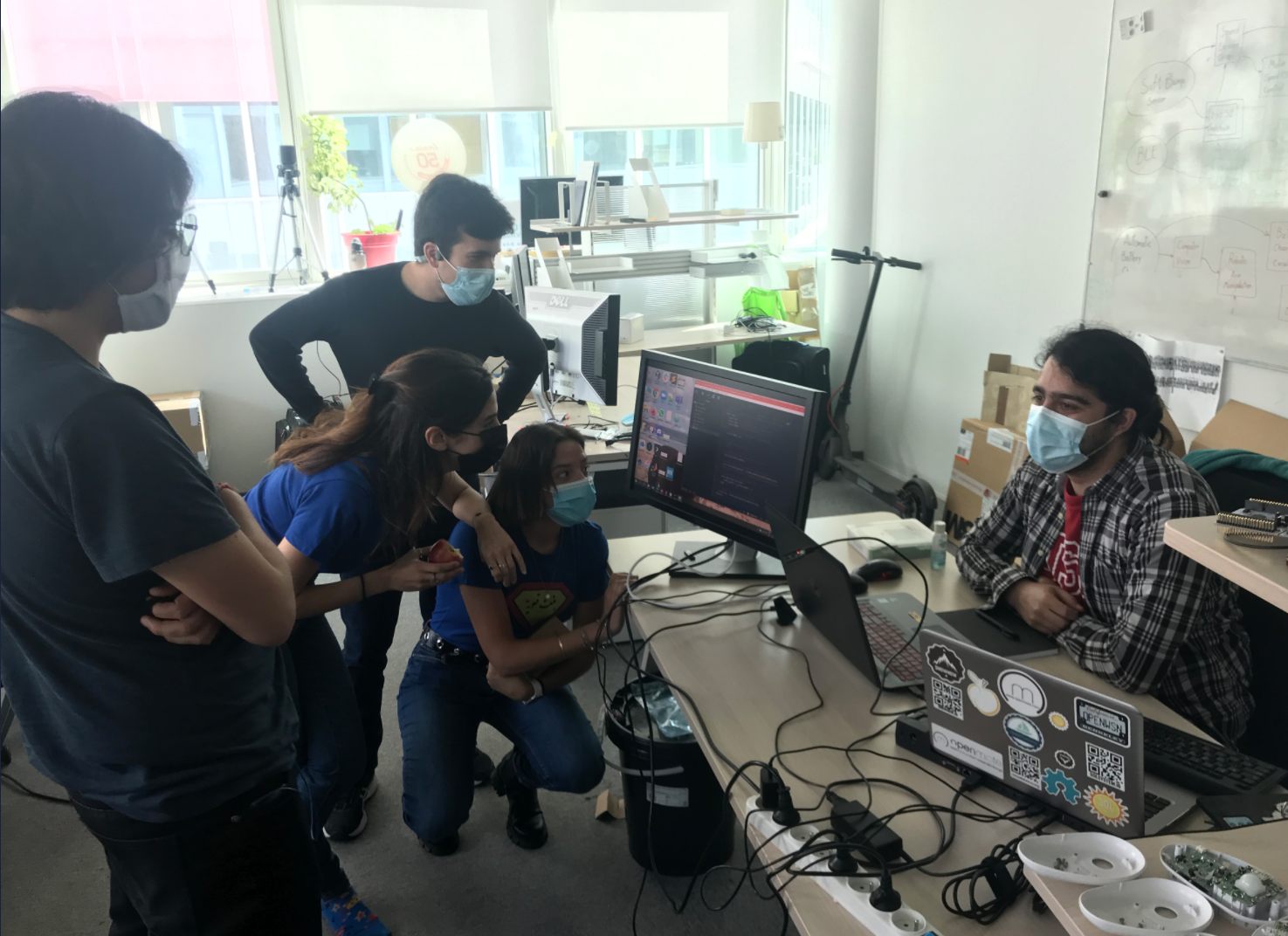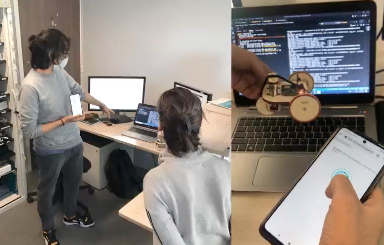
The goal of Inria, both in France and in Chile, is to train advanced human capital in digital technologies. Every year, undergraduate and graduate students from universities with which Inria Chile has an agreement take off from Chilean soil and land at one of the eight Inria centers in the European country.
This program has been running since Inria's arrival in Chile in 2012, and more than 70 university students have already participated, integrating into work in teams that are diverse both culturally and scientifically. In its early years, and until 2016, the internships were carried out thanks to Conicyt's "Science and Technology, Short Stays Abroad for Engineering Students" program.
Today, thanks to Inria Chile's academic network with educational institutions, this is achieved through agreements with the Universidad de Chile, the Pontificia Universidad Católica de Chile (PUC), and the Universidad Técnica Federico Santa María (UTFSM), which, together with Inria Chile, co-finance the selected students with resources for travel and a three-month stay in France.
From Interns to PhDs
Ignacia Cancino is a biotechnology engineer from the Pontificia Universidad Católica de Chile, and in the midst of the pandemic in 2020, she completed her internship in the city of Grenoble, at the foot of the Alps. She recounts that after the experience, she was very satisfied with the team and the work they were doing, and thanks to that, she is currently completing her doctorate at the Inria center in that same French city.
Her work consists of computational analysis of metabolic strategies of the tuberculosis microbacteria through the formulation of mathematical models for bacterial growth. "In simpler terms, the idea is to build models for different variables and study each metabolite in depth. This is relevant because, although there is a vaccine for tuberculosis, there are still new cases of people contracting it, and it is not as effective as before. Therefore, the idea is to anticipate this and study it thoroughly," she explains.
This internship program allowed Ignacia to get to know and integrate into the IBIS research team led by Hidde de Jong, with whom she is working on her doctorate. "I really liked the experience, and it was the reason why I later applied for the doctorate. There was a lot of collaboration, and it is a very interdisciplinary team. We are one of the few teams that deal with biological issues, so there are many different people, with different stories, nationalities, and cultures," she adds.
Another student who is completing a doctorate is Ignacio Fierro, a mathematical engineer from the Universidad de Chile. He completed his internship at the Inria Sophia Antipolis - Méditerranée center, on the shores of the Mediterranean Sea. "I wanted to work in more applied mathematics, so at Inria, I had the opportunity to use them in something more tangible, such as models of microalgae growth and how different light patterns affect their growth," says Fierro, who carried out his work under the supervision of researcher Olivier Bernard in the BIOCORE project-team.
He points out that he was impressed with how Inria worked. "In Chile, apart from Inria, there is nothing similar; it operates with different centers throughout the country, and it is an institution that is only dedicated to research and science. You can connect with cultures from other countries, so the experience enriches you a lot. The professor in charge of me offered me the possibility of returning to do the doctorate, and he did a lot of paperwork to be able to stay here," he states.
Current Interns
During 2021, there were 11 interns in France due to this program. Alfonso Cortés, from the Universidad Técnica Federico Santa María, and José Astorga, from the Universidad de Chile, are two of them and are currently completing their internship at Inria Paris Centre, along with the EVA project-team, led by researcher Thomas Watteyne. The academic explains that "it is the first time that we have received postgraduate student researchers from Chile, and I must say that it has been fantastic. They have contributed a really solid experience that is very complementary to what my team is doing, so they have been making real contributions."
Alfonso has been collaborating on a new project for flexible hardware for low-power wireless networks, mainly focusing on development with field programmable gate array (FPGA). The student explains that "at EVA, they know how to take advantage of each person's strengths, so it was an opportunity to apply advanced knowledge from my training. Additionally, I greatly appreciated the possibility of being able to work in such a varied and multicultural team."
For his part, José Astorga has been focusing on the DotBot project, in which they are developing a swarm robot system for testing communication and coordination algorithms. The intern believes that programs like these allow students to conduct high-level research and complement their professional training with academic training. "Personally, the most valuable aspect of this experience was being able to observe the work methodology and the vision of development," he details.
Thomas Watteyne adds that "beyond the purely scientific aspects, José and Alfonso have fit in very well within the work group, participating in all our activities and being part of the team, which is particularly important to me. I look forward to receiving future generations of Chilean student researchers."
Currently, there are 14 students from the Universidad de Chile, Pontificia Universidad Católica, and Universidad Técnica Federico Santa María who, thanks to Inria Chile, are preparing to leave in the coming months to the Inria centers in Paris, Lyon, Saclay - Île-de-France, Sophia Antipolis - Méditerranée, Rennes - Bretagne Atlantique, and Bordeaux - Sud-Ouest to join the teams that are already waiting for them.

